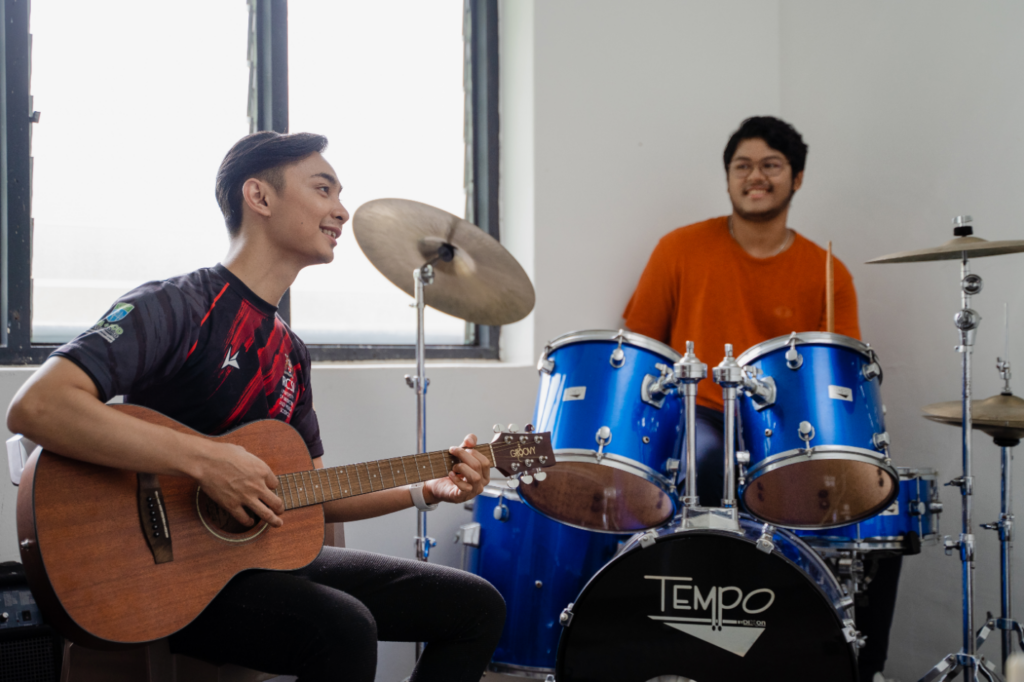Pursuing a medical degree is a transformative journey that brings both challenges and rewards. While academic excellence is a priority, finding equilibrium between rigorous studies and enriching extracurricular pursuits is essential. In this article, we delve into the process of managing academics and extracurricular activities while navigating the unique landscape of a medical school life in Malaysia.
Adjusting to the Rigours of Medical School
Transitioning to medical school represents a significant shift in your academic journey. Adapting to the demanding curriculum and embracing the vibrant medical student lifestyle can be both exhilarating and daunting. As you immerse yourself in this new chapter, it’s crucial to remember that holistic growth transcends textbooks and lectures. The transition to medical school life offers an opportunity to embrace cultural diversity, explore new traditions, and develop a global perspective. Engaging with classmates from diverse backgrounds enhances your ability to collaborate effectively in the ever-evolving field of healthcare.
Choosing a Medical School: Beyond Academic Excellence
Choosing a medical university is a decision that shapes your future. While academic reputation is vital, considering the opportunities for extracurricular involvement is equally crucial. A medical university that fosters a balanced experience can significantly contribute to your personal and professional development. Institutions like the RCSI & UCD Malaysia Campus (RUMC) acknowledge this importance and provide avenues for students to explore diverse interests. The multicultural environment of RUMC enhances your interpersonal skills and cultural competence, crucial assets for any future healthcare practitioner in an increasingly interconnected world.

Balancing Academics and Extracurricular Activities
Nurturing Holistic Development: Engaging in extracurricular pursuits nurtures skills that extend beyond the classroom. Leadership, teamwork, time management, and effective communication are honed through participation in clubs, organisations, and community initiatives. These skills are invaluable not only during your time as a student but also in your future medical practice, where effective communication and collaboration are essential.
Mitigating Academic Stress: Medical studies can be intense, making extracurricular activities a valuable outlet for stress relief. Investing time in hobbies you’re passionate about can rejuvenate your mind and prevent burnout. Furthermore, participating in physical activities or artistic pursuits can enhance your cognitive function and creativity, indirectly benefiting your academic performance.
Cultivating Valuable Networks: Extracurricular involvements offer opportunities to connect with peers who share your interests. Building relationships with like-minded individuals can open doors to future collaborations and enduring friendships. These networks can be invaluable for sharing academic resources, study techniques, and emotional support throughout your medical journey.
Mastering Time Management: Balancing academics and extracurriculars necessitates adept time management. Learning to allocate time for both spheres equips you with a life skill crucial for your journey beyond medical school. Effective time management not only ensures that you excel academically but also enables you to explore your passions without compromising your studies.
Building a Robust Profile: As you progress toward a medical career, a well-rounded CV distinguishes you. Employers and residency programmes value candidates with diverse experiences that showcase adaptability and a commitment to personal growth. Extracurricular activities demonstrate your ability to manage multiple responsibilities simultaneously, a skill essential for a successful medical career.

Ways for Harmonising Academics and Extracurricular Pursuits
Strategic Planning: Begin each semester by comprehending your academic obligations. Construct a study timetable that designates specific periods for lectures, study sessions, and coursework. Factor in extracurricular commitments to ensure a balanced schedule.
Embrace Passion Projects: Engage in extracurricular activities that resonate with your passions. Whether it’s sports, arts, volunteer work, or research, pursuing activities you love enhances your overall experience. Passion fuels motivation, making it easier to balance your pursuits.
Dedicated Time Blocks: Organise your day into dedicated blocks for studying, classes, extracurricular involvements, and personal time. Adhering to your schedule ensures you meet academic and personal objectives. Incorporating time for relaxation and self-care is equally crucial.
Set Realistic Milestones: Recognise your limitations and establish achievable goals for both academics and extracurriculars. Avoid overcommitting, as it can lead to exhaustion and subpar performance. Quality engagement in a few activities is more valuable than superficial involvement in many.
Open Communication: Keep professors and activity leaders informed about your commitments. Transparent communication prevents schedule clashes and potential conflicts. Moreover, educators and mentors can offer guidance on balancing academic and extracurricular pursuits effectively.
The Art of Saying No: While involvement is valuable, recognise your boundaries. Politely decline new commitments when your plate is full to maintain balance. Prioritising your well-being is paramount to sustaining long-term success.

Incorporating Wellness and Self-Care
Beyond academics and extracurriculars, prioritising wellness is paramount. Implement strategies such as regular exercise, sufficient sleep, and mindfulness practices to sustain your physical and mental well-being. By cultivating a healthy lifestyle, you enhance your ability to navigate the demands of medical school effectively. Recognize that self-care is not a luxury but an integral aspect of maintaining equilibrium.
Deciding to study medicine is a transformative endeavour that transcends academic achievement. It encapsulates personal growth, vibrant experiences, and a balanced lifestyle. Balancing academics and extracurricular activities is not a mere juggling act—it’s a skill that necessitates patience, planning, and dedication. By embracing effective time management, pursuing your passions, nurturing holistic well-being, and engaging in a diverse cultural environment, you pave the way for success in the pursuit of your medical career.
















